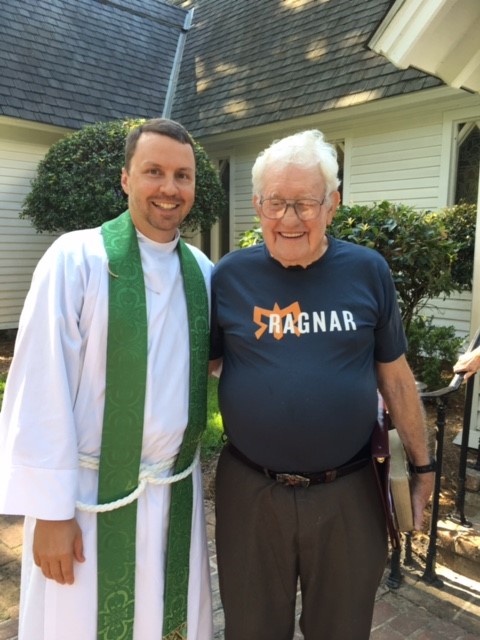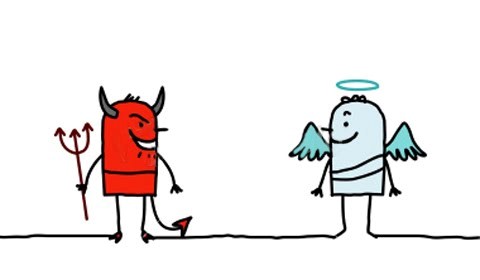
This past weekend was a weekend of contrasts. The high of Saturday, with Ernie’s completion of his remarkable run across the country was an incredibly uplifting experience. Then I got the message Sunday afternoon that Emiko (Stobaeus) Diaz had been killed, and her daughter wounded, in an act of domestic violence. That news brought the lowest of lows. Human beings are incredible of amazing things, some good, some bad. We are wonderfully and fearfully made, with incredible power to wield over ourselves and others. We have an example of one man that stands as a testament to the abilities of the human body and spirit. We have an example of another man who gave in to some weakness, if only momentarily, which unleashed a great evil (I am not saying Jesus Diaz was evil, just that he committed an evil act; there is a difference.). This is not a Rambling about this weekend’s tragedy, it merely highlights the dichotomy of our humanity.
The truth of the matter is that we each have the capacity for these extreme tendencies within us. It is the heart of the theological understanding of the nature of sin. God made us in God’s image, a beautiful and good part of Creation, yet within us rests the free will to choose what we will do and how we will respond to the world around us. I’ve used the Cherokee story of the two wolves before; that within each of us there is a battle between a good wolf and an evil wolf. The one we feed is the one that will win. Often when we hear this illustration, we understand it from our own experience.
So what does it mean to feed the right wolf, and how to we starve the other one? Let’s be honest. Most of us are going to fall on the spectrum somewhere between Mother Teresa and Hitler, without ever getting too close to their respective ends. Our life is lived, for the most part, in a middle section where we dance between good and evil, between sin and righteousness. All this it to say again that a person who commits a sinful act, is not defined by their act. One who does something bad is not necessarily a bad person. It simply means that a choice was made to feed the wrong wolf.
Sometimes we do such things and they are outside our control. Genetics, addiction, illness, chemical imbalance – all of these may play a part in or set the stage for behavior that we wish we did not engage in. I think St. Paul understood this when he admitted to the Romans, “For what I want to do I do not do, but what I hate I do.” Crimes of passion would be another example that probably relates to these four triggers in many cases. Other times we knowingly choose an option with complete responsibility for the choice we’ve made. In both cases, we find ourselves in need of confessing our shortcomings, failures, and sins.
So, feeding and starving the wolves; it’s something we can learn to do. Feeding the good wolf is done by living into Christ’s

selfless example whenever we can. Helping people who need it, sharing a kind word, loving with abandon, and recognizing God’s blessings are all ways of feeding the good wolf. Being aware of and limiting our self-centeredness, our reluctance to help others, the amount of energy spent on gossip and negative communication, and the frequency with which we lack civility will help starve the other one. And here’s the thing about these wolves: We can feed and starve the wolves of others as well.
When we do good, we spread good. When we condone the bad, the bad spreads. When we thank people for the goodness they engage in, it reinforces it. When we join in with opposite behavior or stay silent in the face of it, it reinforces or at least endorses it. The “pay it forward” phenomenon is real. When strangers secretly pay for a cup of coffee or a meal for someone, more often than not that person will try to repay the kindness to someone else. I remember reading once about how many dozens of customers at a Starbucks drive through kept a pay-it-forward chain going. I also saw firsthand how it affects a community when I was back in Lancaster, PA this past Christmas. One day the paper published an entire page (!) of letters to the editor thanking the anonymous persons who had bought lunches, dinners, or coffees for people. What a nice change to see the editorial section used for something uplifting when it so often filled with complaints and bickering!
It may see silly or naïve to address good and evil with ideas like cups of coffee, but the truth is that the smallest things in life can still have enormous impact. If we all worked to improve our civility, eventually civility would make its way back into public discourse. If we all loved with abandon, it would not take long for a corresponding affect to be noticeable in the communities we live in. We are capable of great and terrible things all at the same time, and heaven help us when we let ourselves feed the terrible side of the equation. We may not be able to do something as momentous as running across the nation, but I’m quite sure we can make an impact in our community with even the smallest amount of effort.
Tom+
Almighty and everliving God, you have made all things in your wisdom and established the boundaries of life and death: Grant that we may obey your voice in this world, and in the world to come may enjoy that rest and peace which you have appointed for your people; through Jesus Christ who is Resurrection and Life, and who lives and reigns for ever and ever. Amen.
